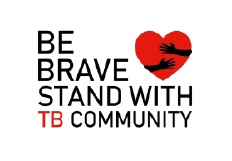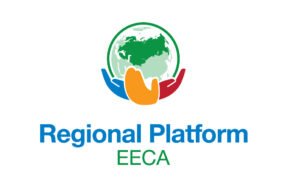Terms of Reference for the consultants to conduct the assessment of the fulfillment of HIV related sustainability commitments given by the national governments in the context of country transition from the Global Fund’s support to national funding in Bosnia and Herzegovina
- 05.07.2021 16:47
- Post Views: 410
Background
Being a partner of the Alliance for Public Health, the All-Ukrainian Network of PLWH 100% Life and other regional and national partners in the implementation of the Global Fund funded regional HIV project “Sustainability of services for key populations in Eastern Europe and Central Asia”, the Eurasian Harm Reduction Association (EHRA) is aimed at the improving the financial sustainability and allocative efficiency of HIV programs in EECA countries.
To contribute to this objective, EHRA is planning to conduct the assessment of the fulfillment of HIV related sustainability commitments given by the governments of 10 EECA countries in the context of their transition from the Global Fund‘s support to national funding, including Bosnia and Herzegovina. It is expected that based on the results of such assessment the key civil society regional and national partners working in those selected countries, will be able to adjust their advocacy efforts and actions to improve the financial sustainability and allocative efficiency of HIV national programs.
For that purposes in 2020 EHRA has developed a methodology and tools to conduct such assessment on a periodic basis.
EHRA is looking for a national consultant to help with conducting such assessment in Bosnia and Herzegovina. The assessment will be conducted retrospectively, taking into account that the implementation of the last Global Fund HIV grant ended in this country few years ago.
Key tasks to be conducted by the consultant.
The consultant is expected to organize the national assessment process in accordance with the Assessment Guide “Benchmarking Sustainability of the HIV Response in the Context of Transition from Donor Funding” to be provided by EHRA. The assessment process should include the next stages:
- Scoping: Identify and collect a set of strategic and programmatic documents, including national laws and regulations relevant to the transition process through desk review and interviews with key stakeholders.
- Conduct a review of those documents with the purpose to identify the government’s commitments with regards to transition; formulate and group commitments per the guidance provided by EHRA. Consultant should also identify where public/government’s commitments are deficient to properly address transition challenges or to be monitored.
- Coordinate and work with the national reference group to be composed of community representatives and national experts and engage them in (i) selecting priority commitments for the monitoring; (ii) define formulation of commitments if those are not sufficiently elaborated in public documents; and (iii) elaborate additional commitments if considered absolutely nessesary for transition process monitoring.
- Collect data through desk research and/or key informant interviews aimed to measure progress for the selected set of commitments.
- Input selected indicators into the Transition Monitoring Tool to calculate the score; and,
- Write an analytical report to summarize the findings.
A Sample Outline of the National Report is provided in Annex 5 to the Assessment Guide. The report should include contextual sections, findings and conclusions for each of the assessed commitment as well as general conclusions and recommendations for key national stakeholders.
Deliverables:
1.A. Repository and mapping of documents relevant to transition process (placeholders) and containing the government’s obligations with regards to transition (intentional or officially approved).
1.B. Repository of commitments, which the country (relevant public/governmental agencies) has committed to implement in support of transition of HIV response.
2. Filled in Transition Monitoring Tool.
3. Analytical Report on the results of the assessment of the fulfillment of HIV related sustainability commitments given by the national government in the context of country transition from the Global Fund’s support to national funding.
The language of the resulted documents should be English.
Also, the consultant is expected to take part in the national webinar to be organizer by EHRA to present on the results of the assessment.
Methodology, Instruments, Training and Technical Support
An Assessment Guide “Benchmarking Sustainability of the HIV Response in the Context of Transition from Donor Funding” together with the Transition Monitoring Tool in Excel format will be provided to the consultant by EHRA in English.
An online training on the assessment framework, methodology and tools will be organized by EHRA for the selected consultant to help better understand the methodology requirements and approach, assessment process and the expected results.
EHRA will also provide online mentorship and support to the national expert during the process of the assessment through the regular conference calls and by periodic review of the assessment outputs.
Consultant is expected to be available for a by-weekly calls with EHRA assigned staff/experts to discuss the progress/challenges with the completion of the assessment.
Timeframe
- The online training on the methodology and instruments will be organized by EHRA for the selected consultant by end of July.
- The first 3 of the above-mentioned stages of the assessment process should be completed by 31.08.2021. The report outline, instruments for structuring information and interview guide should be agreed with EHRA in case they are changed\adjusted. List of the National Reference Group members should be agreed with EHRA as well by that date.
- Stages 4 and 5 should be completed by 23.09.2021.
- The draft report should be provided to the EHRA colleagues for the review and feedback by 10.10.2021.
- The final report and all other deliverables should be submitted by 30.10.2021.
Cost of services
The total contract cost for the work of one consultant under this ToR should not exceed 3,000 USD (including all taxes).
Evaluation Criteria
An evaluation panel will assess the extent to which proposals submitted in response to this announcement meet the evaluation criteria below.
The minimum technical score is 90. Only candidates with a minimum score of 90 points out of a maximum of 100 are considered eligible for the assignment. Consultants with proven work experience in the community organization would be given a priority.
The candidates with the highest technical score that meets the requirement will be invited for negotiation of the agreement.
A consultant under this assignment is a person who carries overall responsibility for planning and conducting the study and in drafting the report. Given the essential role of this individual, she/he should possess the following knowledge and experience:
| Criteria | Weighting |
| Excellent understanding of the national HIV service delivery and funding systems as well as of the Global Fund related processes at the national level | 20 points |
| Access to the documents containing HIV related sustainability commitments given by the national government in the context of country’s transition from the Global Fund’s support to national funding in Bosnia and Herzegovina | 20 points |
| Knowledge of, and access to, relevant stakeholders to be interviewed, including government officials, community members, and other experts | 20 points |
| Experience of undertaking similar assessments and a strong record of adherence to evidenced-based approaches | 20 points |
| Good understanding and access to the most recent national HIV epidemiological data | 10 points |
| Proven set of skills for interviewing, conducting a literature review, and writing (including in English) | 10 points |
| Total | 100 points |
Additionally, the consultants should have:
- No conflict of interest (should be declared in the Letter of Interest);
- Fluent English and national language.
How to apply
The individual consultants are invited to submit their CV and the Letter of Interest by e-mail referenced under title “Consultant to conduct the assessment of transition related commitments in B&H” to ivan@harmreductioneurasia.org by COB 19 of July 2021 24:00 EET.
Services for migrants and refugees from Ukraine – HIV/TB care with a focus on key populations
Due to the increasing flows of refugees from Ukraine because of Russia’s invasion of Ukraine, the EECA Regional Platform created a spreadsheet to fill contacts details of face-to-face and online services for refugees and migrants (with a focus on HIV/TB care and key population groups).
Regional Platform – EECA
This web-resource is a part of new regional communication and coordination project “Regional Civil Society and Community Support, Coordination and Communication Platform - EECA”, implemented by Eurasian Harm Reduction Association (EHRA).
Tags
See also
-
EECA’s Regional Platform monthly Newsletter #20, January 2026 27.01.2026 12:58
-
Global Fund Eligibility List 2026 27.01.2026 11:19







